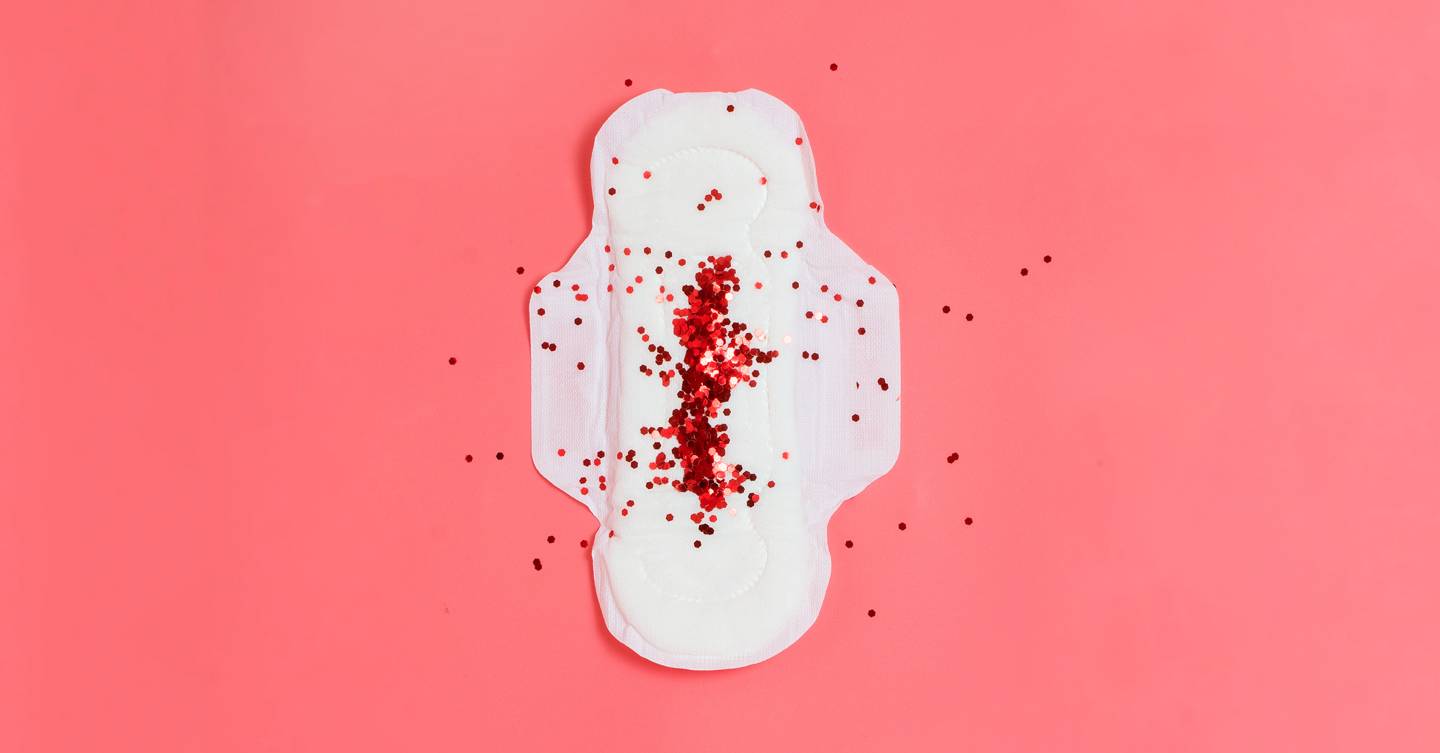Raise your hand if you’ve ever noticed brown discharge before or after your period and been like, “Hold on, I did not sign up for this.” From the moment you first learned about periods, you’ve probably gotten the message time and time again that periods = blood = redness galore. You might not have learned that brown discharge after your period (and before) are actually part of the whole mensuration extravaganza. But what’s the deal with that brown discharge? We spoke with experts to find out.
Here’s what causes brown discharge before and after your period
You can blame this weird one on chemistry. Brown discharge is the result of blood that has been exposed to oxygen for a long enough time to change colour. This can happen for a few different reasons.
First, let’s go through some quick period 101. During your menstrual cycle, the lining of your uterus grows and thickens to support a possible pregnancy. If a fertilised egg latches onto that plush uterine lining, it can begin to receive the nutrients it needs to grow. If, on the other hand, you don’t get pregnant, your uterine lining sheds through your vagina as your period.
As for that brown discharge? “Brown discharge before a period is usually just due to a little bit of bleeding,” Christine Greves, M.D., a board-certified ob/gyn at the Winnie Palmer Hospital for Women and Babies, tells SELF. If you shed a bit of your uterine lining early and your period isn’t flowing heavily yet, it can take more time for the blood to work its way down to your vaginal opening, giving it more time to mix with oxygen, Jessica Shepherd, M.D., a minimally-invasive gynecologist at Baylor University Medical Center at Dallas, tells SELF. In a chemical process known as oxidation, that oxygen can turn your usual red blood brown, Dr. Shepherd explains.
On its way out of your vagina, this brown blood will mix with your usual discharge, which is a mix of cervical mucus and vaginal fluids and cells, depending on the time of the month. The end result: It might look like you now have brown discharge, and, yeah, we get why that would be concerning.
Then, when your period picks up and the blood is coming out more quickly, it can maintain a more reddish hue because it doesn’t have as much time to mix with oxygen on its way out, Dr. Shepherd explains.
It’s the same deal when you get brown discharge after your period, Dr. Greves says: Some leftover blood may be taking its sweet time leaving your vagina, oxidizing and combining with your discharge on the way. It looks weird, but it’s actually no big deal.
But what about brown discharge that isn’t right before or after your period?
Again, this means that you have a little bit of bleeding happening in the middle of your cycle, which can happen for a few different reasons.
For example, it could just be a normal part of the adjustment period after starting a new kind of birth control. Some people also experience spotting during ovulation in the middle of their menstrual cycles, which may look brown and might take you by surprise if you recently stopped using birth control that suppresses ovulation. Cervical polyps (little growths that hang down from your cervix and are typically non-cancerous) and uterine polyps (growths that extend into your uterine cavity and are also most often benign) can cause light spotting between periods as well. Polycystic ovary syndrome (PCOS), a common hormonal condition, can also cause breakthrough bleeding between cycles, alongside other symptoms like excess hair growth.
In some cases, brown discharge could even be a sign of early pregnancy. This could be something called implantation bleeding, which is spotting that takes place one to two weeks after a fertilized egg attaches to the lining of your uterus, per the American College of Obstetricians and Gynecologists. So if you have this and then don’t get a period (or just experience very light bleeding) and you think you may be pregnant, bring it up to your doctor.
Here’s how to know if you should talk to your doctor about brown discharge.
If you’ve always had brown discharge before and/or after your period, rest assured: It doesn’t mean anything is up with your health.
In general, this is nothing to be alarmed about, Jonathan Schaffir, M.D., an ob/gyn at the Ohio State University Wexner Medical Center, tells SELF. Consider it evidence of a cool chemical process, slap on a pantyliner or your underwear-protectant of choice, then go about your day.
But if brown discharge is new to you, it can be a good idea to flag it for your doctor, Dr. Greves says. Especially if it’s happening between your regularly scheduled period.
If you’re at all concerned, or even just curious, mention it to your ob/gyn so they can investigate. At the very least, talking about it with them will probably help you understand your vagina a little better, and that’s always a good thing.
